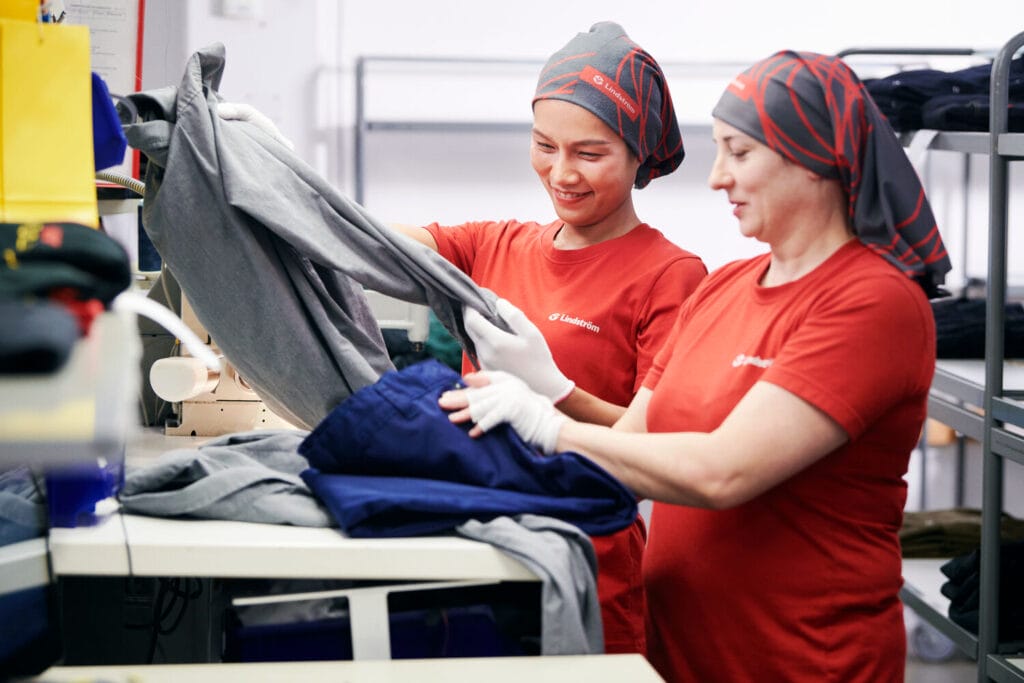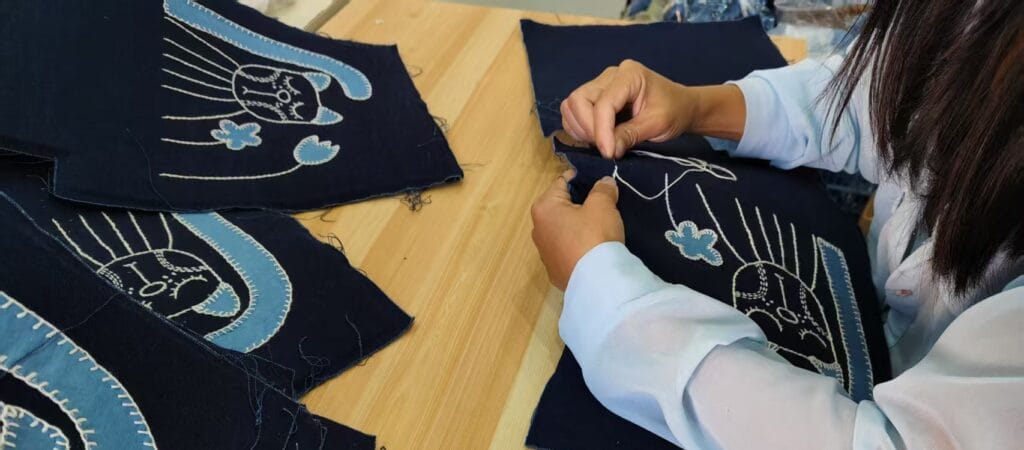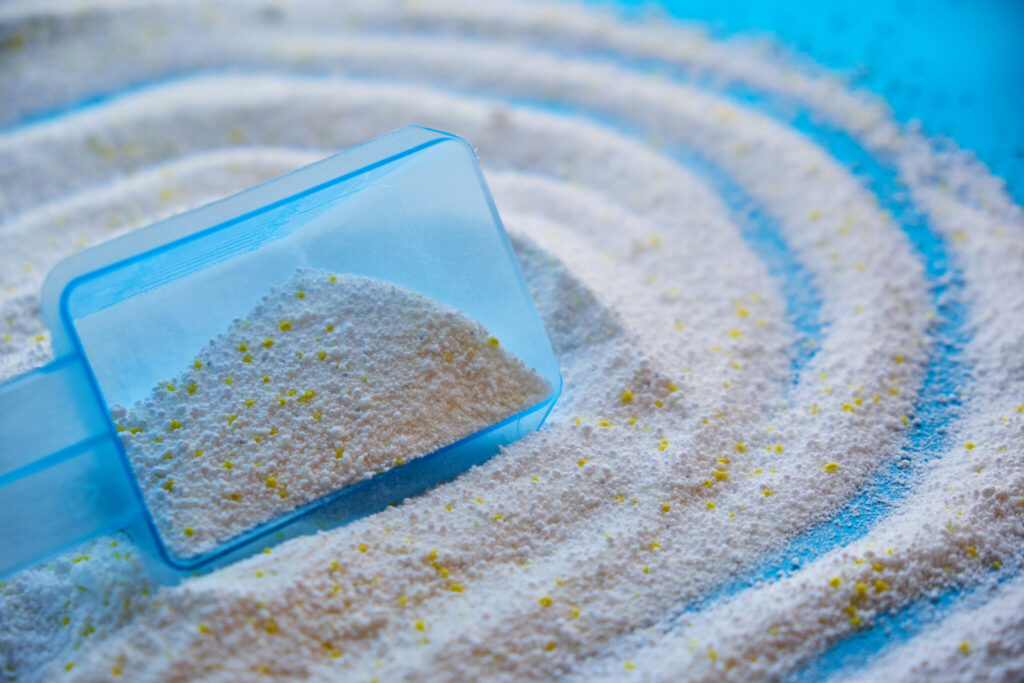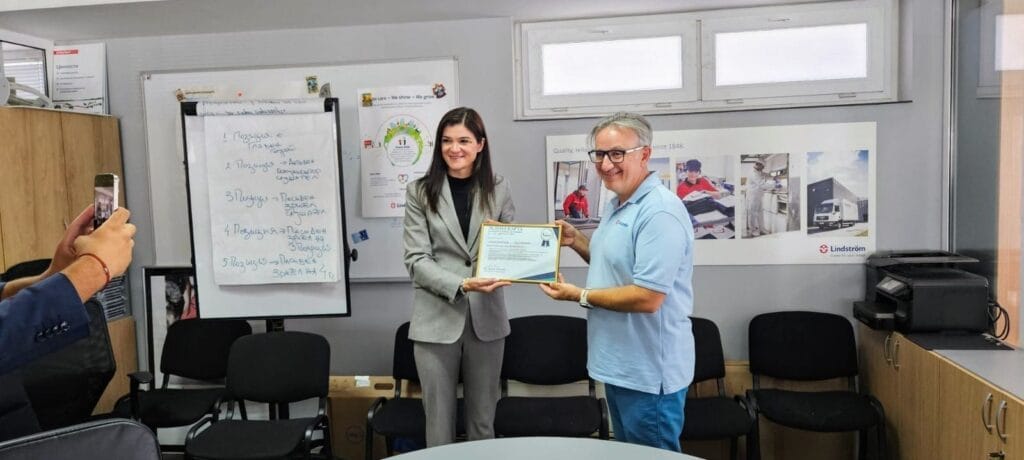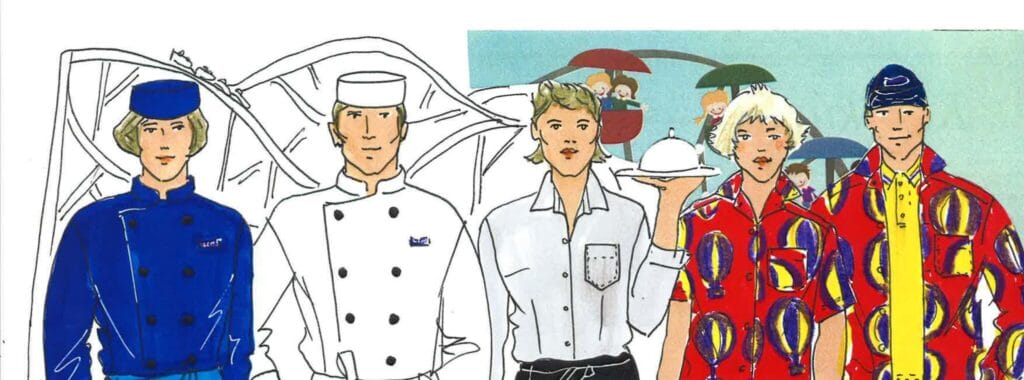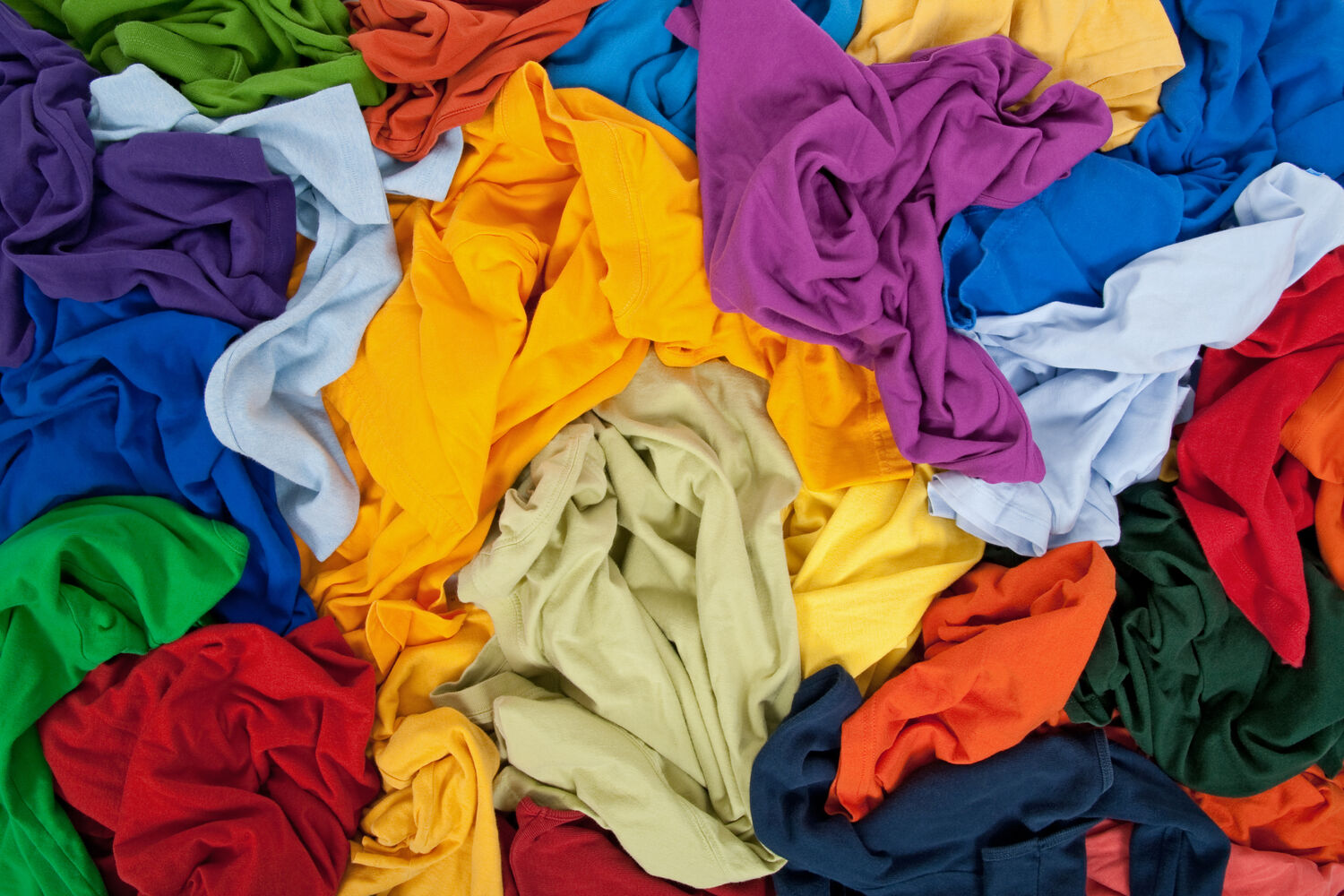
Lindström and Rester launch the first industrial-scale textile waste refining business in the Nordics
Finnish multinational textile services group Lindström and the circular economy company Rester Oy have entered into an agreement according to which Rester will start processing Lindström’s workwear clothes, restaurant textiles, and possibly also cotton towel rolls for industrial reuse at the Paimio processing plant in Finland in early 2021. The cooperation will cover all of Lindström’s Finnish business units. The annual amount of waste textile processed through Rester will be about 500 tons per year, of which 4/5 consists of workwear. The Lindström Group aims to recycle 100% of its waste textiles globally by 2025.
The cooperation between Lindström and Rester on the processing of waste textiles is a kick-start for the systemic change in the textile industry and unique in the entire Nordics. At the heart of the agreement are Lindström’s end-of-life workwear clothes. About 400 tons of Lindström’s workwear in Finland end up as waste textiles every year, of which only 5% can currently be recycled. Clothing is challenging to recycle because of the many different fibers and materials used in it, as well as the buttons, snaps, and zippers. Most of the waste textiles end up in incineration, i.e. are disposed mainly through energy recovery.
Lindström’s textile rental business model is based on a sharing and circular economy as well as responsible service and product design. Responsibility is central through the value chain and product life cycle. Particular attention is paid to the choice of durable, ethically produced materials, the use and repairability of clothing, the environmental impact of the washing process, transport distances, and the recycling or recovery of used textiles as recycled products.
In terms of recycling of other types of textiles, Lindström has been cooperating with various parties for some time. The Rester collaboration provides a solution to the challenge of recycling workwear: through it, almost 100% of workwear disposal textiles can be recycled. At Rester’s Paimio processing plant, textile fibers are made from waste textiles for use in the textile industry for the production of yarn and further fabric or technical textiles, or in the construction industry for the production of insulation and composite materials and acoustic panels.
“We want to be a leader in our industry in terms of sustainable development. We are happy to be at the forefront of creating a competitive circular economy business model and accelerating systemic change in the entire industry. This cooperation is a strategic partnership for us, which not only guarantees reliable, responsible, and transparent recycling of our waste textiles, but also that the optimal use of recycled fibers is actively and innovatively developed for different industries”, says Anna-Kaisa Huttunen, SVP, Ecosystems in Lindström Group.
“Rester aims to make a decisive contribution to increasing the use of recycled textile fibers, thus replacing the use of virgin fibers. Together with third parties, we make companies’ disposal textiles recycled in an optimal way for each fraction of the raw material, and the operators who use the raw material gain added value from the circular economy through environmental savings. The Lindström partnership plays a significant role for Rester in building this value chain; the predictability of material flows and the uniformity of recyclable waste textiles provide an excellent basis for developing circular economy operations”, says Outi Luukko, Chairman of the Board of Rester, who became the company’s CEO at the beginning of January 2021.
Lindström targets to recycle 100% of its waste textiles
In addition to workwear, the cooperation between Rester and Lindström also covers restaurant and hotel textile waste, which amounts to approximately five tons per year. The suitability of cotton towel rolls for the Rester process is also being investigated. Lindström is also exploring the possibility of delivering the disposal textiles of the neighboring Swedish and Baltic business units, as well as the cutting waste generated in Lindström’s own clothing manufacturing plants, to Rester for processing.
“Our strategic goal is to have 100% of our waste textiles recycled globally by 2025. In principle, textile waste should be treated wherever it is generated. We have a significant volume of business in Asia, for example, and we are currently looking for a partner to develop our recycling in India and China”, says Huttunen.
The textile and clothing industry is facing inevitable change. Products are increasingly made from natural resources and have little re-use or further processing at the end of their life cycle. It is estimated that only 3-8% of the textiles consumed in the EU each year are recycled. The industry is looking globally for new ways of working and innovations that enable the transition to a circular economy. The long-term vision is to reduce the use of virgin raw materials and produce high-quality recycled fiber as a raw material for the textile industry.
“Lindström is a pioneer of resource-efficient textile services in Finland with its business model based on the circular economy. We want to help our customers improve their carbon handprint. Lindström’s customers can be confident that the disposal textiles have been properly recycled and do not end up in landfills, incinerators or the wrong hands”, says Huttunen.
